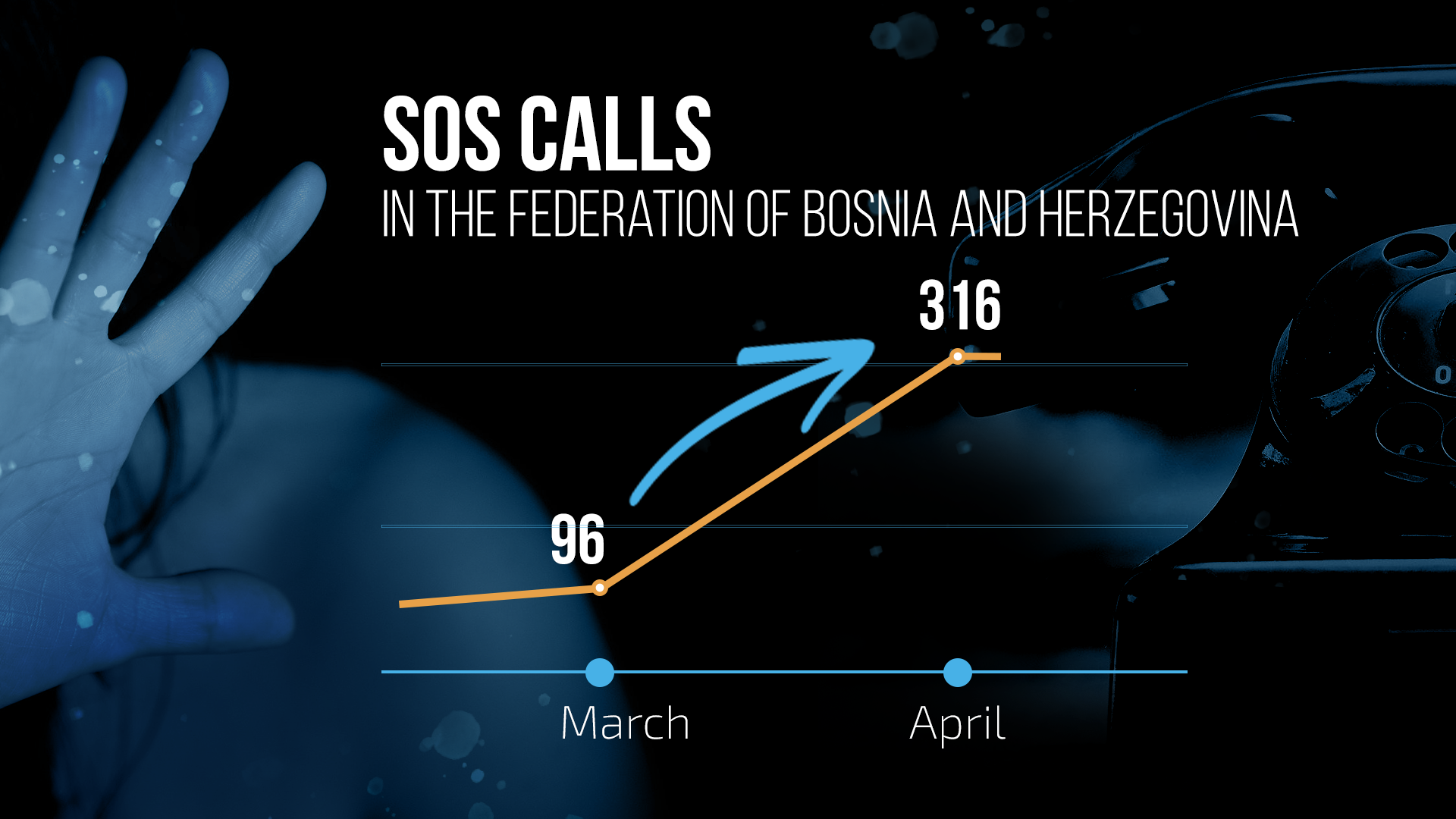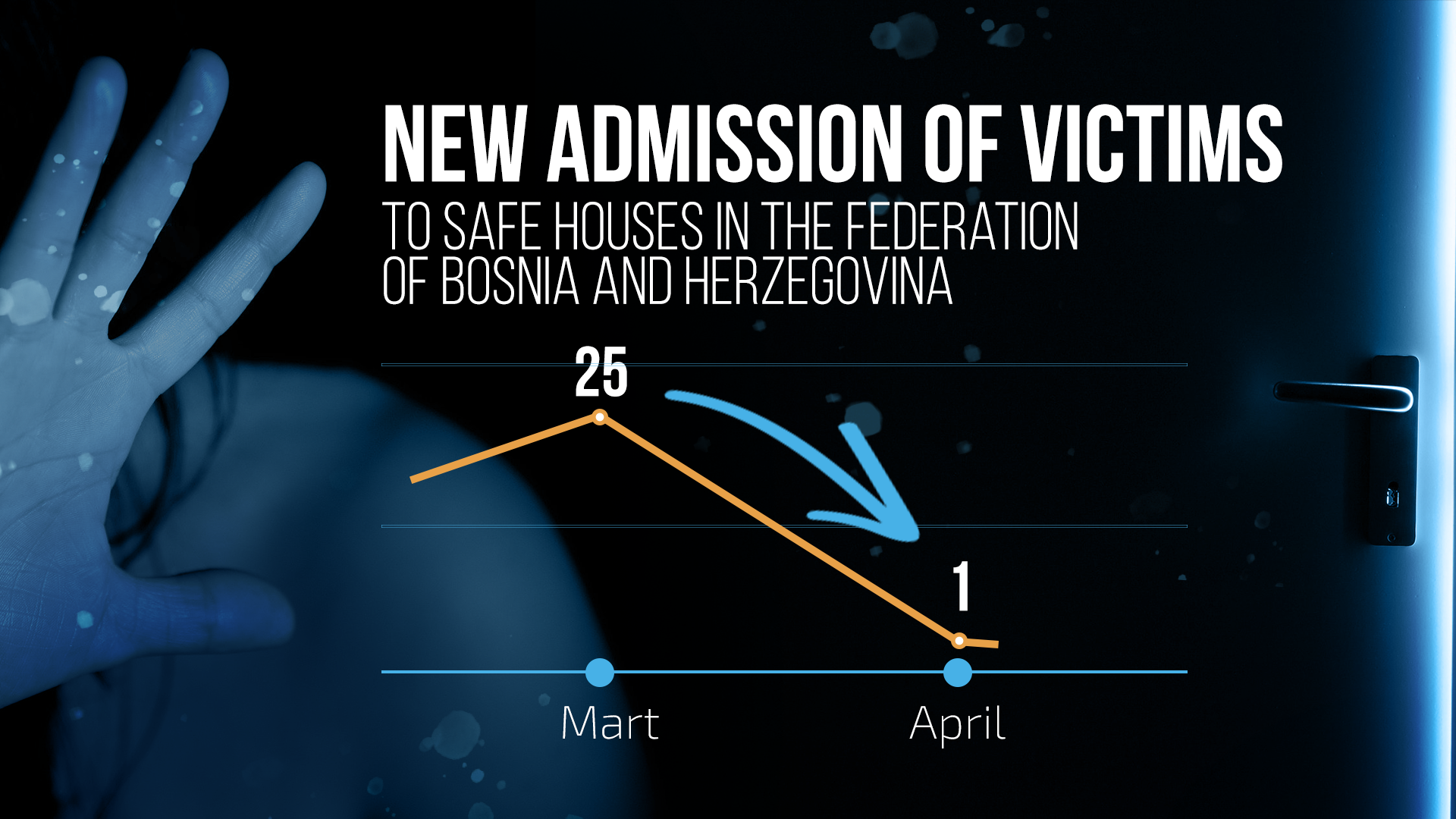Domestic and gender-based violence increase in Bosnia during pandemic, analysis

An analysis by N1's Nikola Vucic is focusing on domestic and gender-based violence during the Covid-19 pandemic, which led to systemic complications, complex procedures in providing the assistance as well as a significant increase in cases of domestic violence.
Families across Bosnia and Herzegovina, as well as the Balkans, have faced burdensome thoughts of how to pay regular utility services, from electric power, water supply to monthly rent or loans. Besides, new education practices were imposed on their children that the whole communities had to urgently adjust to so that they do not lag behind the challenges of 'the new normal.' The pandemic has introduced a whole myriad of social challenges and issues, and has brought the professional and laymen communities to face the question: were the measures well designed?
The analysis focuses on violence against women. NGOs in Bosnia and Herzegovina have recorded a series of issues and difficulties in working with victims of violence during the Covid-19 pandemic, which resulted in complications in providing the domestic violence victims with adequate support and assistance.
Activist Sabiha Husic, a representative of the 'Medica' association, told N1 that social services departments terminated direct communication with their users due to the restricted working hours during the pandemic. The access to healthcare has been either banned or narrowed to minimum services, while the police focused mostly on the implementation of measures related to the pandemic and did not respond to needs of the violence victims, according to Husic.
“The women called crisis hotlines and other available phone numbers, and the police would take steps from the scope of its jurisdiction only after the calls from the association,” she said.

The hotlines, online support and e-mail inboxes of the NGOs in Bosnia's Federation (FBiH) region that run the safe shelters for women warn that the number of calls as a consequence of domestic violence has increased, especially at the end of March, throughout April and now during May and July.
The statistics also show that only one person was accepted in a shelter in the FBiH during April, while the hotline calls dramatically increased in this month that was marked with the pandemic.

“The most often reasons why women called were the violence by their partners, brothers, close relatives they share the living area with, suicidal thoughts due to the violence by their partners or parents, health issues that were additionally worsened due to the violence, difficult socio-economic situation,” Husic told N1.
Emergency calls
Various sorts of violence against women and children have been recorded in the past period: from physical to more subtle and psychological violence.
According to Husic, there were also examples of “further isolation” where the victim would be taken her phone and in that way deprived of any communication with other people.
As for Republika Srpska, Bosnia's other region, the 'United women' association has adjusted its work to the pandemic and new circumstances. Besides regular services, including emergency phone lines, they were providing legal assistance and psychological support through electronic media as well.
“During the month of April, we received a total of 116 emergency calls, which is 10% more compared to the month before that. During the month of May, there were 167 reports. This refers to Banja Luka only. Compared to April and May last year, the reports increased by 20-30%, which can be linked to the Covid-19 pandemic,” said the association representative Nada Golubovic.
The same trend was present in other safe shelters across this region.
The World Health Organisation (WHO) said the violence against women remains a huge threat to global public health and health of women, even during the extraordinary circumstances. The institution has warned about the alarming information that every third woman in the world experienced physical or sexual violence.
Broken family relations are not contributing to adequate, healthy support, but to the one that destructs already deteriorated the psychological state of individuals, mostly women.
What's the conclusion? Women in Bosnia and Herzegovina are reluctant about reporting the violence during the pandemic period or without it, as they believe someone would seek for mistakes in their own behaviour, that they would be blamed for the failure of their families or that they contributed to the violence. It all shows that beliefs and stances of the Bosnian population are still strongly affected by patriarchal influence, which leads to the silence about the violence. However, although the system failed to respond to challenges in an adequate way, the NGOs supporting women tried to send a message to women victims of violence and tell them that there is a way out of the violence, that they should report it, call emergency lines and that many activists intervened in accordance with available resources.
Kakvo je tvoje mišljenje o ovome?
Učestvuj u diskusiji ili pročitaj komentare





 Srbija
Srbija
 Hrvatska
Hrvatska
 Slovenija
Slovenija







